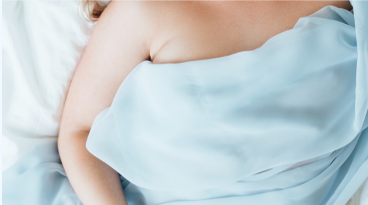Last week we talked about caring for a sunburn, which made me think of the nostalgia of youth. I, like many young people, was never concerned with sun damage. I’d spend my summers frolicking in the sun with ne’er a care in the world. Not until attending aesthetics school did I even contemplate the effects (besides cancer) that the sun, or my lifestyle, could have on my skin. Now, 20 years later, the effects of lifestyle on my aging skin are evident.
What exactly is aging skin?
To start off, there are basically two types of aging skin: intrinsic and extrinsic. Intrinsic skin goes through the basic process of aging regardless of skincare regimen or prevention. It is your genetic rate of aging. The collagen in your skin decreases naturally at about 1% per year after age 20 and melanocytes decrease about 10% per decade. Estrogen starts declining in your 30’s, as well as elastin and hyaluronic acid. Cell turnover begins to slow as well. All of these combined mean that your skin starts to lose some its color, some of its regenerative properties and some of its fullness.
Extrinsic aging is the contribution of behavior and environment to the aging process. UV damage, stress, skincare, diet, and smoking all drastically enhance the effects of aging. UV damage causes connective tissues and elastin fibers to weaken and fray in all three layers of skin, as well as causes sun spots, lesions, and plaques. Stress, particularly cortisol, contributes to skin dryness and speeds up the breakdown of elastic fibers within your skin. Poor skincare can create an environment ripe for toxins. It is possible to strip the skin of needed natural barrier oils, as well as physical damage your skin with harsh, jagged exfoliants. Pollution and cigarettes restrict blood vessels, leading to your skin not getting oxygen and vital nutrients to the surface.
Short of cosmetic surgery, there is nothing you can do to completely stop aging at the cellular level. But, by combatting the extrinsic factors that make aging so evident, it is possible to meet your golden age with impeccable skin.
How can I manage the effects of aging skin?
Of course, there are the golden three: prevent UV damage, drink tons of water, and sleep. Besides those, though, there are a few other tips to help combat the existing damage as well as preventing more damage.
COMBAT
UV damage greatly impacts the elastic fibers in the skin. To combat this, keep a diet rich in Vitamin C and Protein as well as eating a rainbow of vegetables daily. Also, use a mask high in silicon dioxide. Most creams that contain collagen are too large at the cellular level to penetrate to where it is needed. Silica is a building block of collagen and penetrates effectively in order to help repair the breakdown of fibers that UV exposure causes.
In your skincare regimen, ensure to use only chemical exfoliants or manual exfoliants with “rounded’ structure vs “jagged” structure. The jagged structure exfoliants (read shell powders) leave micro-tears in the skin leading to increased texture issues. Incorporate Hyaluronic Acid into your moisture regimen. This will combat the natural HA loss your skin goes through as it ages.
PREVENT
There’s a lot to be said about preventative measures. Limiting UV exposure is obviously #1. There are many skin-friendly sunscreens on the market. But, you can also simply cover-up. Clothing creates a UVA and UVB barrier and is generally an amazing non-chemical way to protect against sun damage.
Use a gentle skincare regimen. Check the labels for potentially harmful ingredients. Stay away from ingredients that strip the natural barrier of oils and don’t forget to look at your cosmetic ingredients as well. When in doubt, ask your aesthetician or skincare professional for guidance and recommendations.
Meditate. Yes, meditate. Practicing mindfulness not only improves your outlook on life, it also helps you to de-stress thus keeping those cortisol levels at a balanced level.
Limit toxins and pollutants to the skin as well. Change air filters in your home and car regularly, and limit exposure to smog, cigarette smoke, and other environmental pollutants. Besides being irritating to your respiratory system, these pollutants can irritate or dry out your skin as well.
These minor changes in lifestyle can make a huge difference in the rate at which your skin ages.

0 Comments